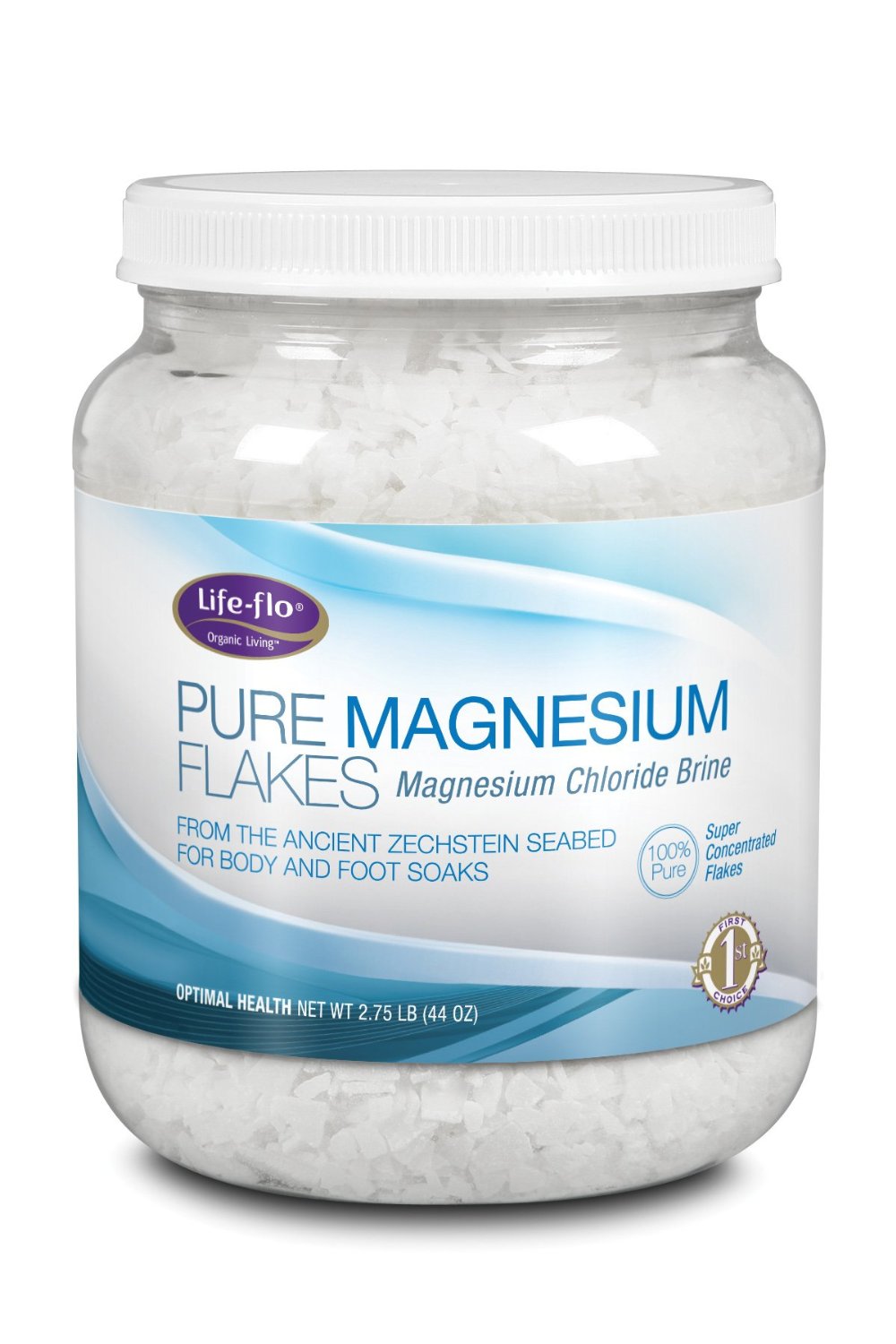I wanted to write about a new favorite of ours at the store- magnesium oil spray and magnesium flakes for soaking. Our new LifeFlo brand magnesium oil spray and flakes are from the Zechstein Seabed- an ancient geological formation of pure magnesium, unspoiled by pollution or chemicals.
Magnesium is great for the muscles, and using magnesium topically (whether through a magnesium oil spray or soaking in magnesium flakes) is especially effective.
I tried some for the first time recently and was kind of amazed, to be honest. It is absolutely wonderful for sore muscles. I’ve been using it when I have sore legs before bed and can’t believe how well it works for soothing and relaxing the muscles. I’ve also been using it on my daughter’s legs when she complains of “growing pains”. Liz, who works at the store, has a son who plays hockey, and he’s been using it after practice to help with sore muscles and is impressed with how well it works.
Even though we’ve primarily been using it for muscle aches, many of our customers have found it to be very effective for arthritis and joint pain as well.
The nice thing about magnesium oil spray and magnesium flakes for the bath (or a foot soak) is that there is really no downside, they can only help. I’d really recommend giving them a try!



